Oregon Film History Conference/May 3, 2019
by Anne Richardson
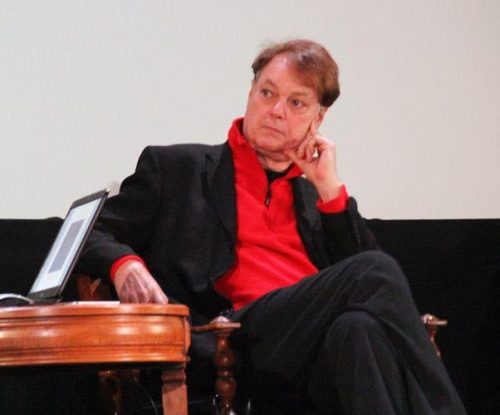
I think it’s part of the responsibility of an artist to shock, to upset, to make people think differently, and to surprise people. And that’s where the good humor is, if there’s a surprise and there’s something unexpected. Something that’s not normal, not in the realm of general living expectations. Bill Plympton
What is the history behind, and the meaning behind, Oregon’s regional strength in creating independent film artists? Where does this longstanding strength fit within the overall intellectual and cultural identity of the Pacific Northwest?
On Friday, May 3, 2019, Oregon Cartoon Institute presents the fifth annual one day Oregon Film History Conference.
Here’s the registration form.
(N. B. Registration closed on April 19.)
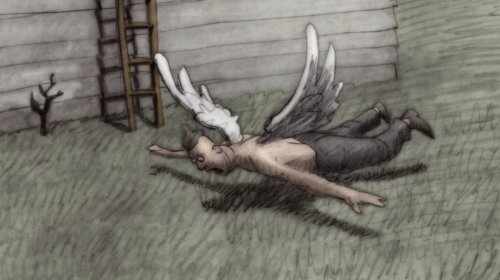
The conference is designed to showcase the complexity and diversity of Oregon film history. It is small in size, and designed to encourage interdisciplinary engagement, open ended conversation, and professional networking.
This year we focus on the intersection of music and Oregon film history. The day begins with a focus on the very first Oregon musician to perform on camera, and ends with an onstage conversation with an artist from Oregon City who uses music extremely sensitively in his films, two time Oscar nominee Bill Plympton.
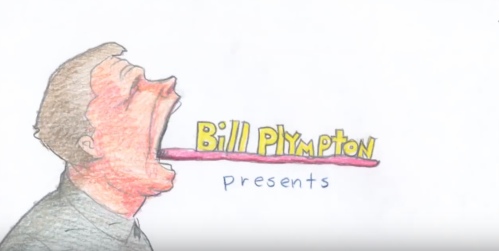
Here is the list of speakers.
MUSIC ON FILM: LEE MORSE
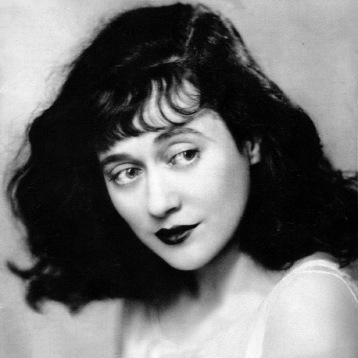
Lee Morse became a top selling recording artist in 1924. She appeared, as herself, in three early soundies made in 1930. Dennis Nyback makes the case that Lena Corinne Morse (1897-1954), born in Cove, Oregon and brought up in Kooskia, Idaho, is the first recorded jazz singer.
Dennis Nyback‘s musical revue CAN’T WE BE FRIENDS? was adapted by PBS to YOURS FOR A SONG: THE WOMEN OF TIN PAN ALLEY in 1999. Nyback presented his paper on Morse at the 2010 Pacific Northwest History Conference. Master projectionist and film archivist, he is co-founder of Oregon Cartoon Institute.
MUSIC IN FILM: JOHNNIE RAY
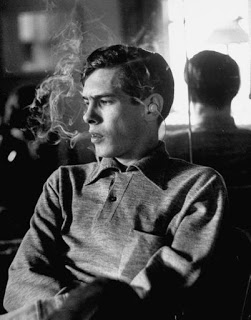
Johnnie Ray was one of the first to make me really open my ears. That was like 2 or 3 years before Elvis. Rolling Stone Bill Wyman
Singer-songwriter Johnnie Ray‘s The Little White Cloud That Cried sold two million records in 1952. In 1954, he starred in THERE’S NO BUSINESS LIKE SHOW BUSINESS. John Alvin Ray (1927-1990) was born in Dallas, Oregon, and grew up in Portland.
Anne Richardson‘s interest in Portland as a pop machine began in New York in the 1990s. She co-founded Oregon Cartoon Institute with Dennis Nyback in 2007.
MUSIC + FILM: KEN KESEY
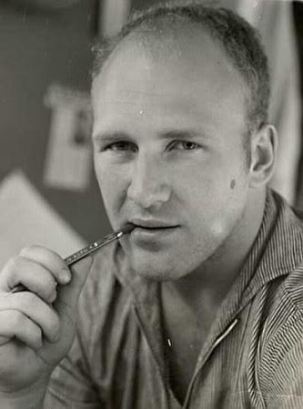
Novelist Ken Kesey (Sometimes A Great Notion, One Flew Over The Cuckoo’s Nest) bought his first movie camera in 1964. In 1965, he began creating immersive art happenings which combined films with live music. Kenneth Elton Kesey (1935-2001) was born in La Junta, Colorado, and grew up in Springfield, Oregon.
Richard Gehr writes about music, culture, and pop culture. He is the co-author of The Phish Book and the author of I Only Read It for the Cartoons: The New Yorker’s Most Brilliantly Twisted Artists. From Portland, Richard now lives in Brooklyn.
BRUSH UP ON BILL: DAVID CHELSEA & PAUL HARROD
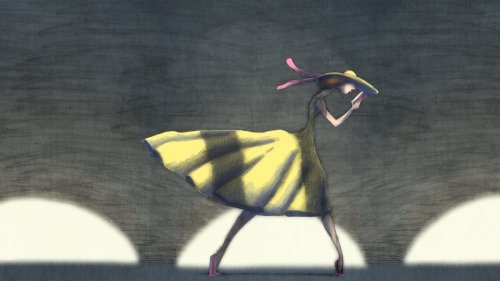
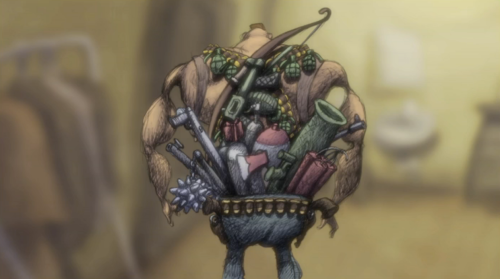
Bill Plympton‘s first hand drawn feature, THE TUNE (1992), was a musical. His fifth and sixth, IDIOTS AND ANGELS (2008) and CHEATIN’ (2013, above), have entirely musical soundtracks. No dialogue at all! Revered by animators and beloved by audiences around the world, Bill Plympton is especially treasured in France.
Graphic novelist, cartoonist, and commercial illustrator David Chelsea will discuss Bill’s uncommon mastery of perspective. Production designer Paul Harrod, winner of this year’s Art Directors Guild award for Best Production Design for his work on ISLE OF DOGS, will discuss Bill as a fellow designer of story worlds.
MUSIC, MODERNISM & MID CENTURY PORTLAND
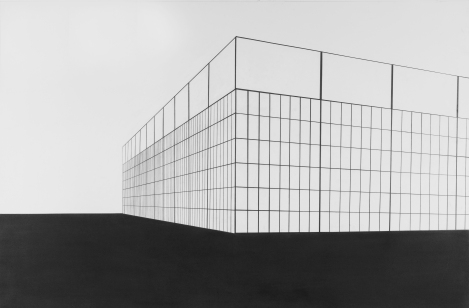
Coliseum 17, Graphite on paper, 40×60 inches, 2017, Avantika Bawa
The Beatles played Portland during their second American tour. Alexander Benjamin Craghead will discuss the modernist masterpiece in which they performed, and describe the way it expressed the values and dreams of mid century Portland.
Alexander’s talk is titled “Your Precious Old Dumb Stuffy Coliseum”: Memorialization, Urbanity, and Democracy in 1960s Portland. The first half of the title is a quote from an angry fan who didn’t get into an overbooked Beatles concert.
Alexander Benjamin Craghead is the author of The Railway Palaces of Portland, Oregon: The Architectural Legacy of Henry Villard (The History Press, 2016). A historian of design and place, he is writing a dissertation at UC Berkeley on the American urban landscape.
TWO QUESTIONS FOR ANNE
Q: What intersection does the Beatles’ 1965 appearance at the Memorial Coliseum have with Oregon film history?
A: The connection is through Capitol Records, which sponsored the Beatles 1965 tour. Pinto Colvig (1892-1967), who performed the voice of Bozo the Clown, and Mel Blanc (1908-1989), who performed the voice of Bugs Bunny, Daffy Duck, and a host of other Warner Brothers cartoon characters, were Capitol’s top selling artists. Thus, arguably, it was the Hollywood success of two voice artists from Oregon which helped underwrite Portland’s only visit from the four lads from Liverpool.
Q: Where was Bill Plympton, age 19, on Aug. 22, 1965, when The Beatles were in Portland?
A: Let’s ask him!
MARNE LUCAS ON BILL PLYMPTON
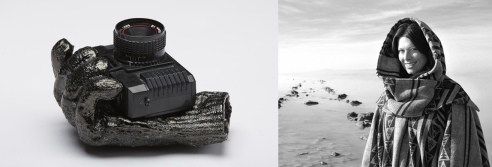
After a day of discussions led by a film archivist, a music journalist, an graphic novelist, a production designer, and an architectural historian, a filmmaker will provide the introduction to our keynote speaker by discussing her response to his work, artist to artist.
Marne Lucas is an infrared video pioneer and visual artist working at the intersection of feminism, art, technology and health. Her filmmaking debut, the magnificently eerie THE OPERATION (1995), was made with Jacob Pander. Her most recent gallery exhibit, Bardo ∞ Project, showcases her collaborative nature in a social practice endeavor on dying and legacy work.
Bill Plympton will join fellow Oregon filmmaker Jim Blashfield for an onstage conversation. Perhaps the conversation will include Bill’s thoughts on how he chooses the music for his films, his own intersection of music and Oregon film history.
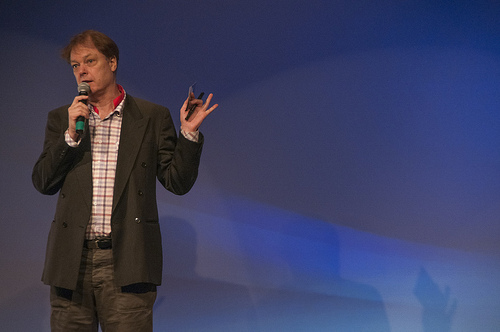
The artist whose work is described by the NY Times as “mischievous, mordant, analytical, and ceaselessly inventive” is, in person, unfailingly polite, calm, and attentive. But it’s true – it is really fun to make him laugh.
Come see for yourself!
========================================================
Registration for the fifth annual Oregon Film History Conference is now OPEN.
This event is free.
Here’s the link to registration form.
Registration is required. Seating is limited. The conference is free, but participants must supply a qualifying affiliation with a non-profit organization (school, museum, historical society, etc.). First come, first served.
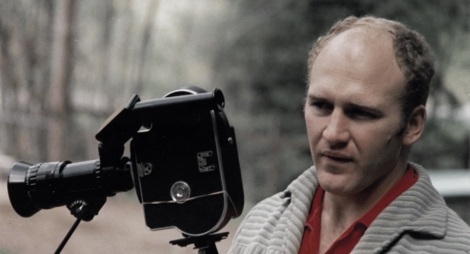
Q: What’s the conference like?
A: Here’s the previous years: 2015, 2016, 2017, 2018.
Contact me if you have questions.
========================================================
Word to the wise: In the middle of the day, we take time out to salute our film history heroes. Last year, the Elmer Buehler Award For Film Preservation went to Sheldon Renan. This year it will go to Heather Petrocelli. Traditionally, the ceremony includes cake for all.
For those unfamiliar with Elmer Buehler, the patron saint of film preservation, Bonneville Power Administration film archivist Libby Burke, will give an orientation.
“Heroes are not giant statues framed against a red sky. They are people who say; This is my community, and it’s my responsibility to make it better.” Tom McCall

============================================================
Oregon Cartoon Institute thanks Kinsman Foundation for their support.
Oregon Cartoon Institute thanks in advance our wonderful speakers Dennis Nyback, Anne Richardson, Richard Gehr, David Chelsea, Paul Harrod, Alexander Benjamin Craghead, and Marne Lucas. Oregon Cartoon Institute thanks in advance our wonderful keynote speaker, Bill Plympton.
Oregon Cartoon Institute thanks in advance our event manager Gretchen Harmon and A/V specialist Brad Robison.
Oregon Cartoon Institute salutes our 2019 Oregon Film History Conference sponsor Oregon Film, aka the Governor’s Office of Film & Television. Thank you, Tim Williams.
Oregon Cartoon Institute salutes our 2019 Oregon Film History Conference sponsor Oregon Film Museum. Thank you, Mac Burns.
Oregon Cartoon Institute salutes our 2019 Oregon Film History Conference sponsor the James Blue Alliance. Thank you Richard Blue and Dan Blue.
Oregon Cartoon Institute salutes our 2019 venue, Lewis and Clark College. Thank you, Matthew Johnston.
A special shout out to Fellene Gaylord, of Sirius Media! Thank you, Fellene.
The 2019 Oregon Film History Conference steering committee: Libby Burke (BPA), Michele Kribs (OHS), Elizabeth Peterson (UO), Anne Richardson (OCI).
More information about Oregon Cartoon Institute here.
And here.
===========================================================
The fifth annual Oregon Film History Conference was made a success by the following participants:
Kevin Beasley, UO/SOJC
Rose Bond, PNCA/Boundary Crossings
Sam Bott, Trillium Charter School
Jim Blashfield, Blashfield Studio
Sean Brown, Washington County/archives
Will Bruder, Will Bruder Architects
Katherine Bruna, Iowa State University/education (Ames)
Libby Burke, Bonneville Power Administration Library
Mac Burns, Oregon Film Museum (Astoria) SPONSOR
David Chelsea, graphic novelist
Lisa Cicala, Oregon Media Producers Association
Alanna Colwell, Washington County/archives
S W Conser, KBOO/Words & Pictures
Alexander Benjamin Craghead, UC Berkeley
Melissa Delzio, PSU/design
Bill Failing, OHS
Diane Freaney, historian/independent scholar (Delray Beach, FL)
Fellene Gaylord, Clark College (Vancouver)
Richard Gehr, music journalist (Brooklyn)
Gretchen Harmon, author (Viewmaster)
Paul Harrod, production designer
Kohel Haver, Volunteer Lawyers for the Arts
Sebastian Heiduschke, OSU/film (Corvallis)
James Hillegas-Elting, environmental advocacy historian
Kami Horton, Oregon Public Broadcasting
Matthew Johnston, Lewis & Clark/art history
Ronald Kramer, author (Oregon radio & television) (Medford)
Michelle Kribs, OHS/film preservationist
Gary Lacher, Movie Preservation
Brian Lord, Portland Film Office
Marne Lucas, filmmaker/sculptor/doula (New York)
Robert Lucas, SOU/digital cinema (Ashland)
David Millholland, Oregon Cultural Heritage Commission
Donald Newlands, NC3D
Dennis Nyback, Dennis Nyback Films
Kenneth O’Connell, UO/artist (Eugene)
Cecelia Otto, American Songline
John Paul, Benedictine College (Atchison, Kansas)
Heather Petrocelli, Manchester Metropolitan University (England)
Bill Plympton, Plymptoons (New York)
Ben Popp, NWFC/filmmaker
Anne Richardson, Oregon Cartoon Institute
Mike Richardson, Dark Horse
Brad Robison, Jacknife Zion Historical Society (Sandy)
Louise Roman, Will Bruder Architects
Patrick Rosenkranz, author (underground comics)
Stephen Rust, UO/English (Eugene)
Larry Shlim, photographer
Bryan Sebok, Lewis & Clark/media studies
Mark Shapiro, independent
Tim Smith, filmmaker
Meg Suhosky, PSU/Millar Library
Larry Telles, author (silent film) (Coeur d’Alene)
Ned Thanhouser, Thanhouser Film Archives
Ellen Thomas, NWFC/education
Chel White, Bent Image Lab
Wim Wiewel, Lewis & Clark/president
Tim Williams, Oregon Film Office SPONSOR
==============================================================
Founded in 2007 by Anne Richardson and Dennis Nyback, Oregon Cartoon Institute uses new media, archival film, research, networking, and cross disciplinary discussion to explore Oregon film, animation, and print cartooning history. It has no brick and mortar presence, and always works in partnership with organizations which do.

This looks like a wonderful line-up!
David Chelsea’s appreciation of Bill is going to start with Brunelleschi (1337-1446), so no one can say we’re not being thorough! 🙂